Melanie — Born to Be
A long, long time ago, I had the much-less-sought-after Woodstock Two soundtrack album. I’m pretty sure I got it at what was, for me, a life-changing garage sale. For whatever reason, despite my love of Jefferson Airplane, and even of Crosby, Stills, Nash & Young, the performances just didn’t resonate with me at the time. Apparently the Jimi Hendrix tracks didn’t do anything for me either, and I actively didn’t care for the Mountain and Canned Heat jams on the fourth side. And, I’ll have to say, the Melanie tracks didn’t connect with me either. Eventually I sold it off in favor of something I must have valued more. And so, other than my brief ownership of that album, I was without any Melanie music for about 50 years.
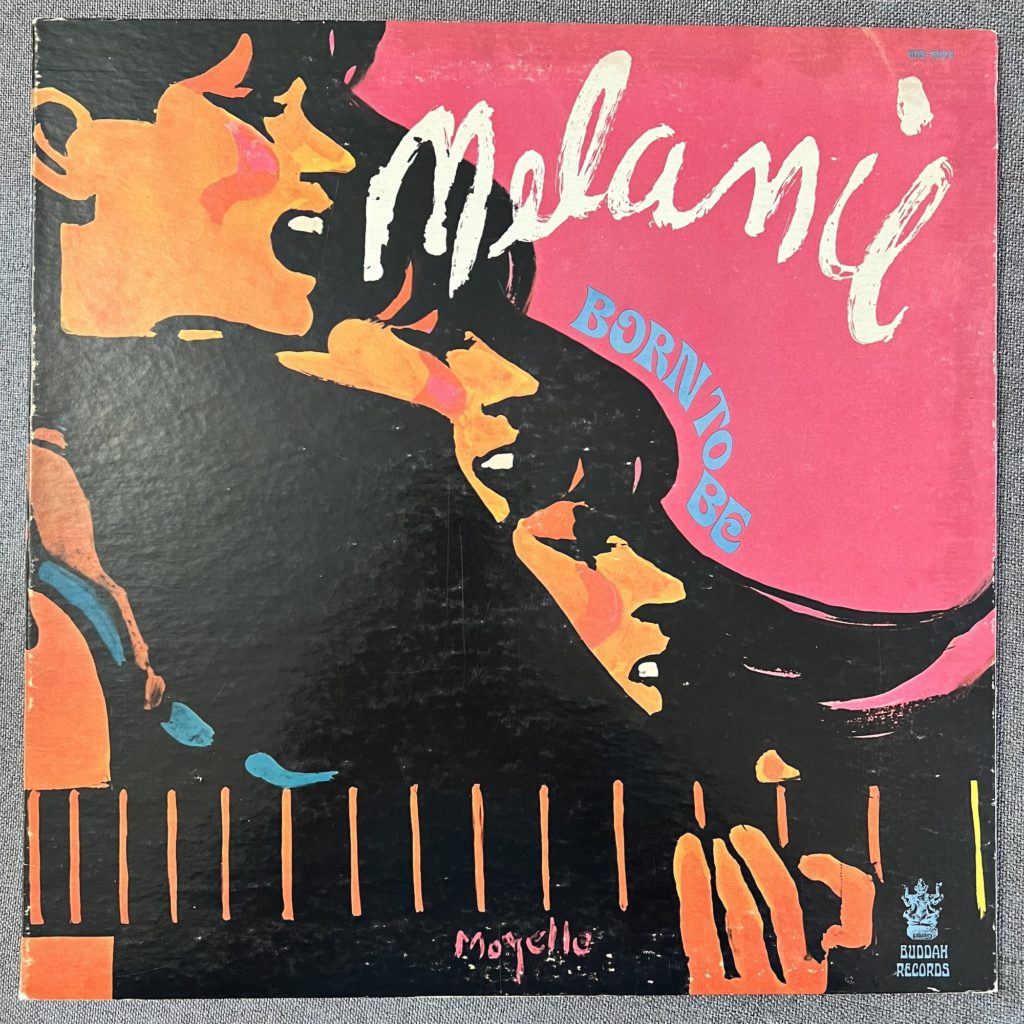
For the longest time, and somewhat naturally, any memory of Melanie would invoke “Brand New Key,” her only number one hit, from 1971. It was big, very big, right around the time I was first getting into music, and it was a bit of a divider: people loved it or hated it. Simple, sweet, a bit of innocent sexual innuendo perhaps (because in the mind of an 11-year-old boy, what isn’t?) But I was also aware of some of her other songs, like “Lay Down (Candles In The Rain),” which also went into the top 10 in 1970, her cover of “Ruby Tuesday,” and “What Have They Done To My Song, Ma,” which became a television variety show staple for other performers. (It also became the basis for some rather obnoxious commercials, including an ad for Lifebuoy soap.) Her voice is a distinctive, earnest folky warble, with beauty and intensity. By the time I got into folk, in the early ’90s, my record-buying days were over, and my collection continued to ignore Melanie.
Then, just before the pandemic, there was a visit to Siren Records, and in amongst a bunch of things, I found a copy of Madrugada for $6 and thought I should give it a try. And I did, and liked it quite a bit.
Then the pandemic hit at the beginning of 2020. There was the initial lockdown, with retail of all sorts essentially closed, no N95 masks to be found, and no vaccine on the horizon. That summer, as things opened up cautiously and masking requirements came in, we started making weekly trips up to Collegeville, where our local health food store had a more spacious location allowing more social distancing. And it happened that Collegeville is also home to one of my favorite local record stores, MaTones, which managed to reopen around that same time. So we’d do a little trick where I’d park at the record store, and Lee would walk on down to the grocery store to start that shopping while, if the record store was empty enough, I’d go in and make a quick scout of the new arrivals and the voluminous $5 section.
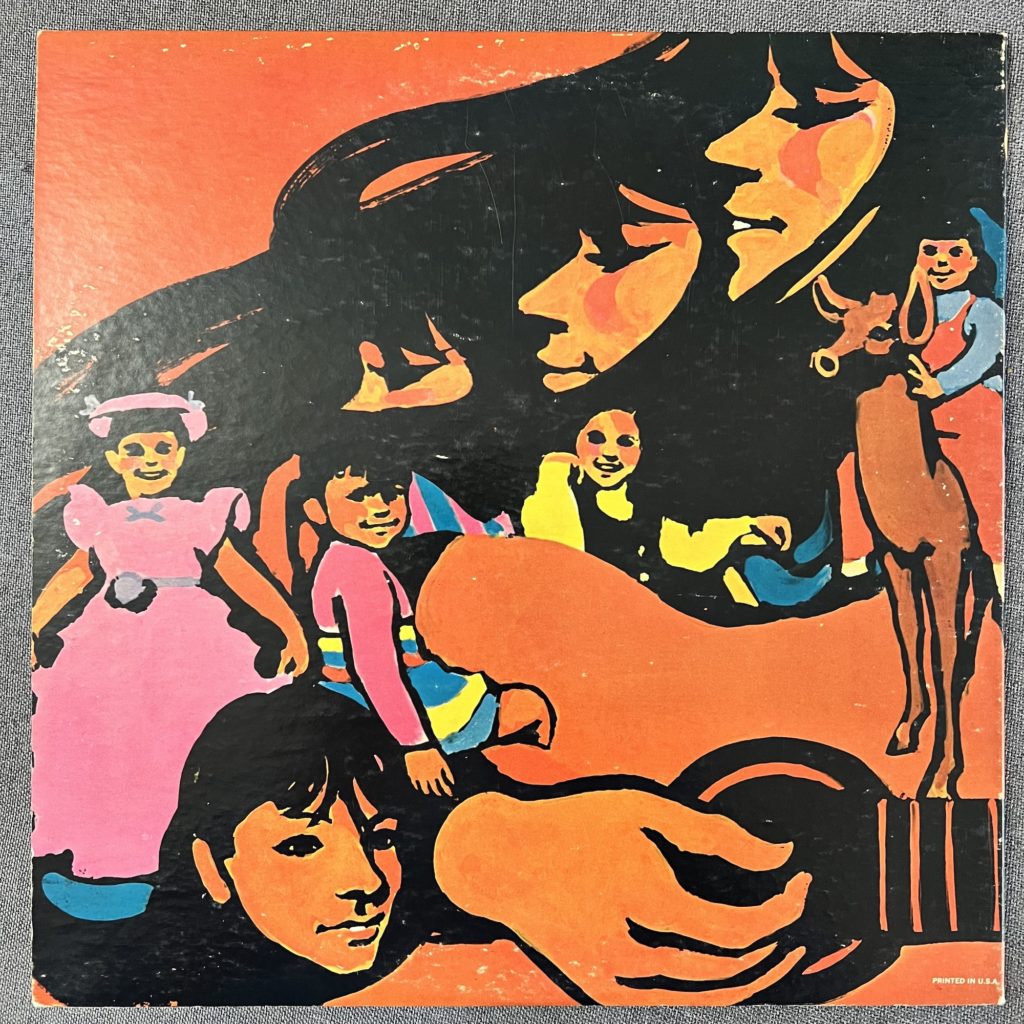
And for a while, every time I went in there, I’d find another Melanie record. I’d take it home,
enjoy it quite a bit, and go back a week or two later and there would be another Melanie record. And in this way, in the course of a few months, I went from owning exactly zero Melanie records to owning seven Melanie records.
The through-line is her voice; the songs and productions vary pretty considerably, from songs that are basically children’s rhymes or just plain silliness to deeply felt plaints for humanity, with production from very bare bones to super-lush instrumentation. That’s true of all the albums, and particularly true of this one, from 1968. Two silly songs, “Animal Crackers” and “Christopher Robin is Saying His Prayers” are offset by a thumb at the nose of religious restrictions (“I Really Loved Harold”) and a plaintive version of “Mr. Tambourine Man.” She throws in an earnest “Merry Christmas” at the end and it’s one of the less annoying traditional Christmas songs, to my ears. I mean, I don’t jump up to get it off the turntable, which is saying something.
So, I haven’t had this 54-year-old album (released in 1968) quite 2 years yet, but it gets quite a bit of play – when I get into Melanie, I tend to get into all of it.
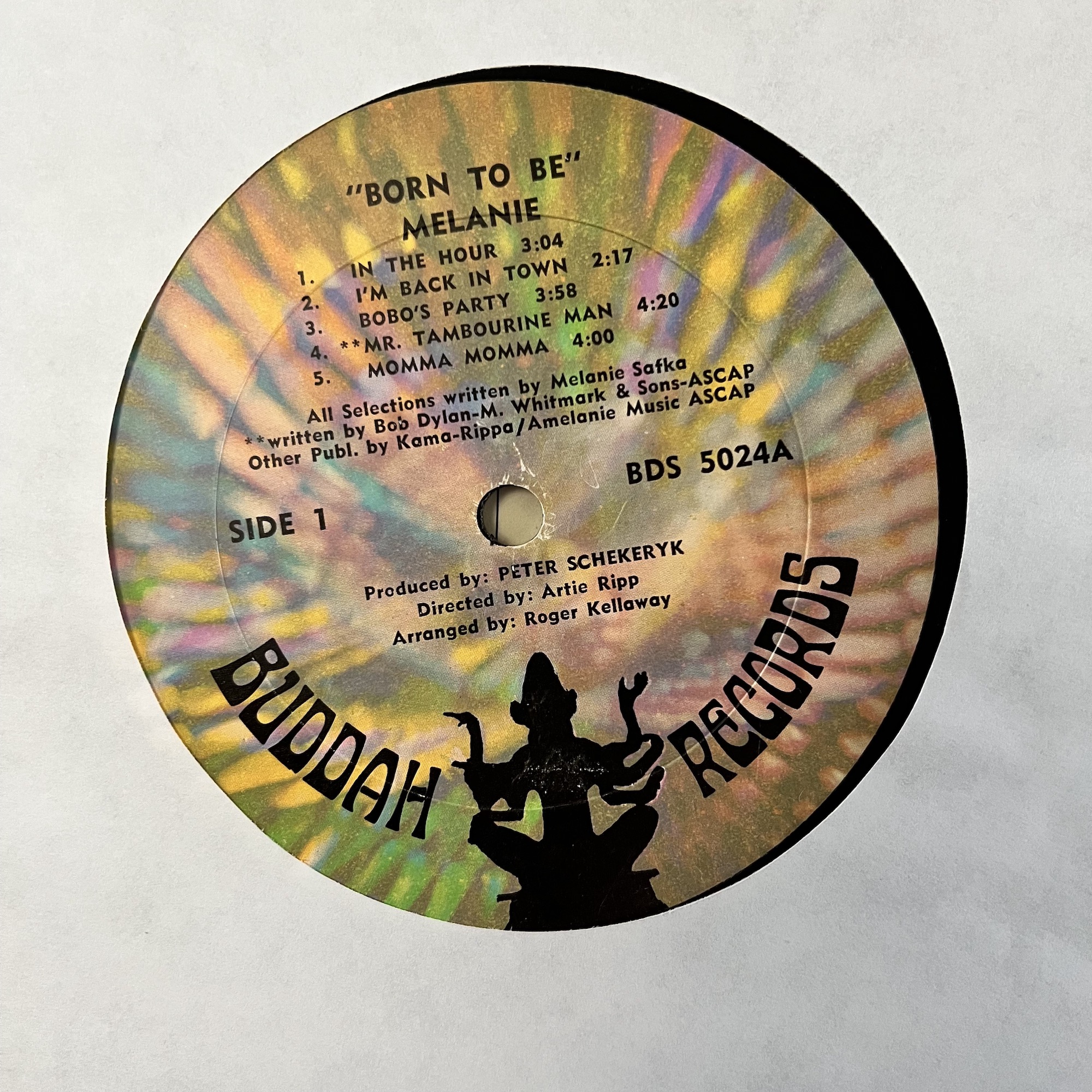
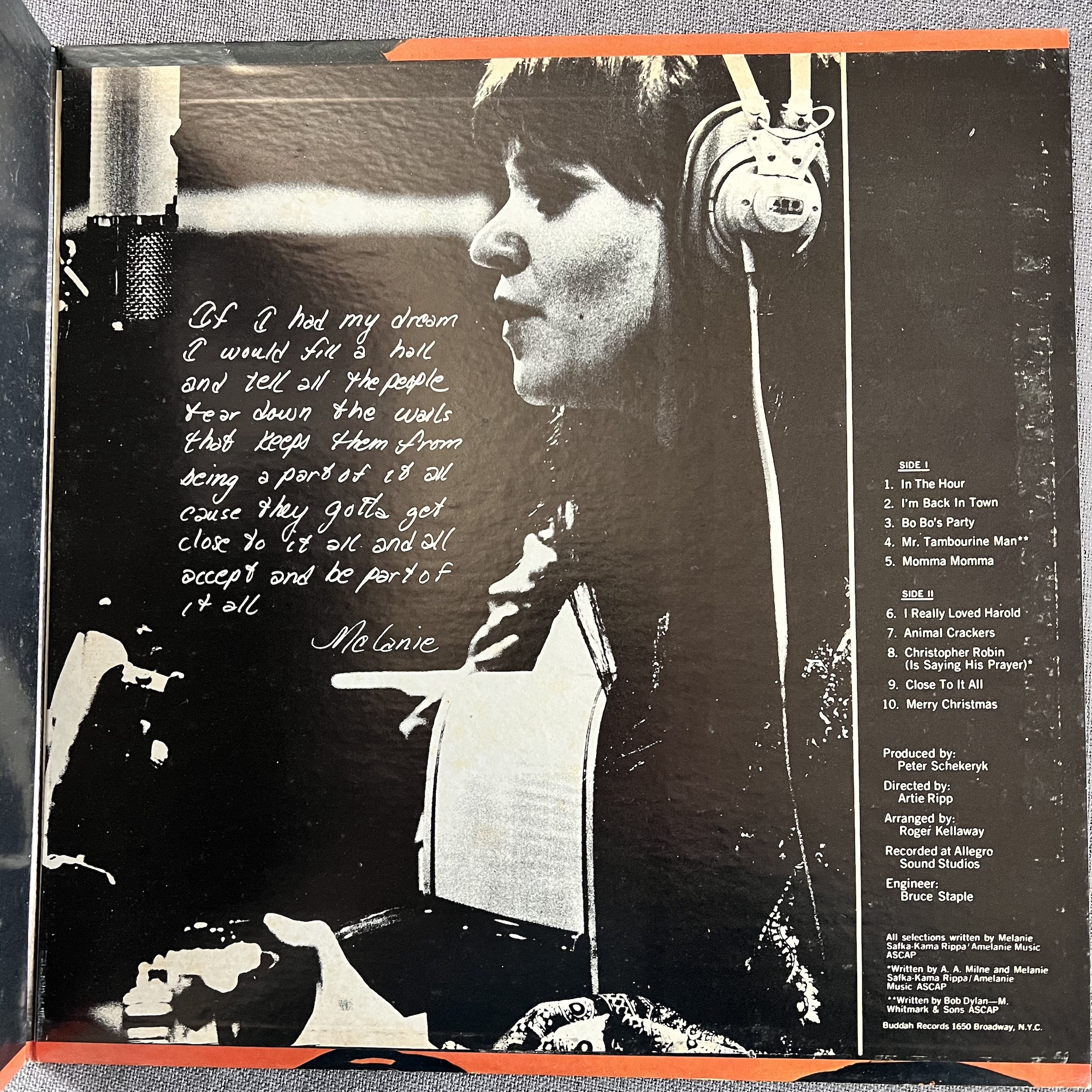
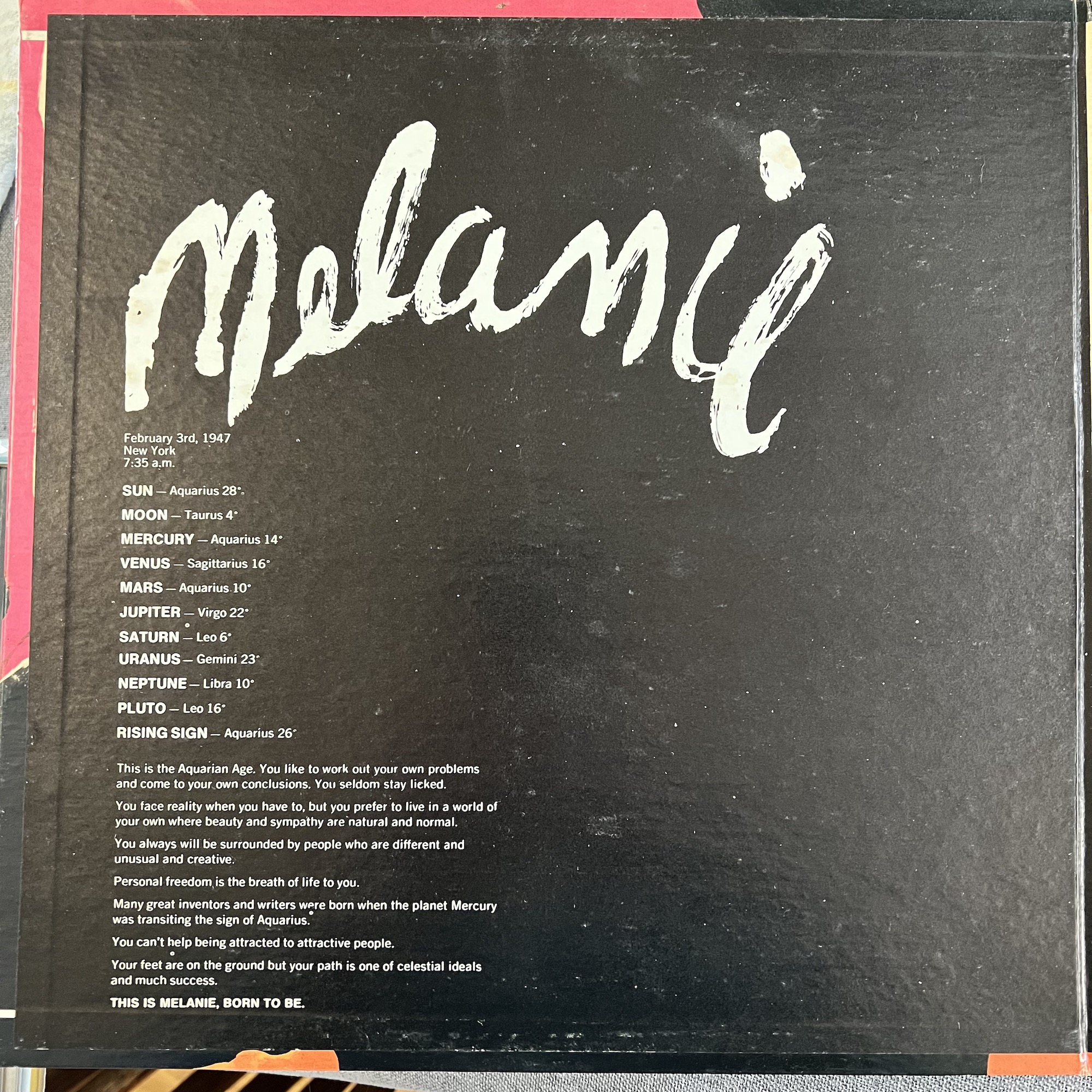
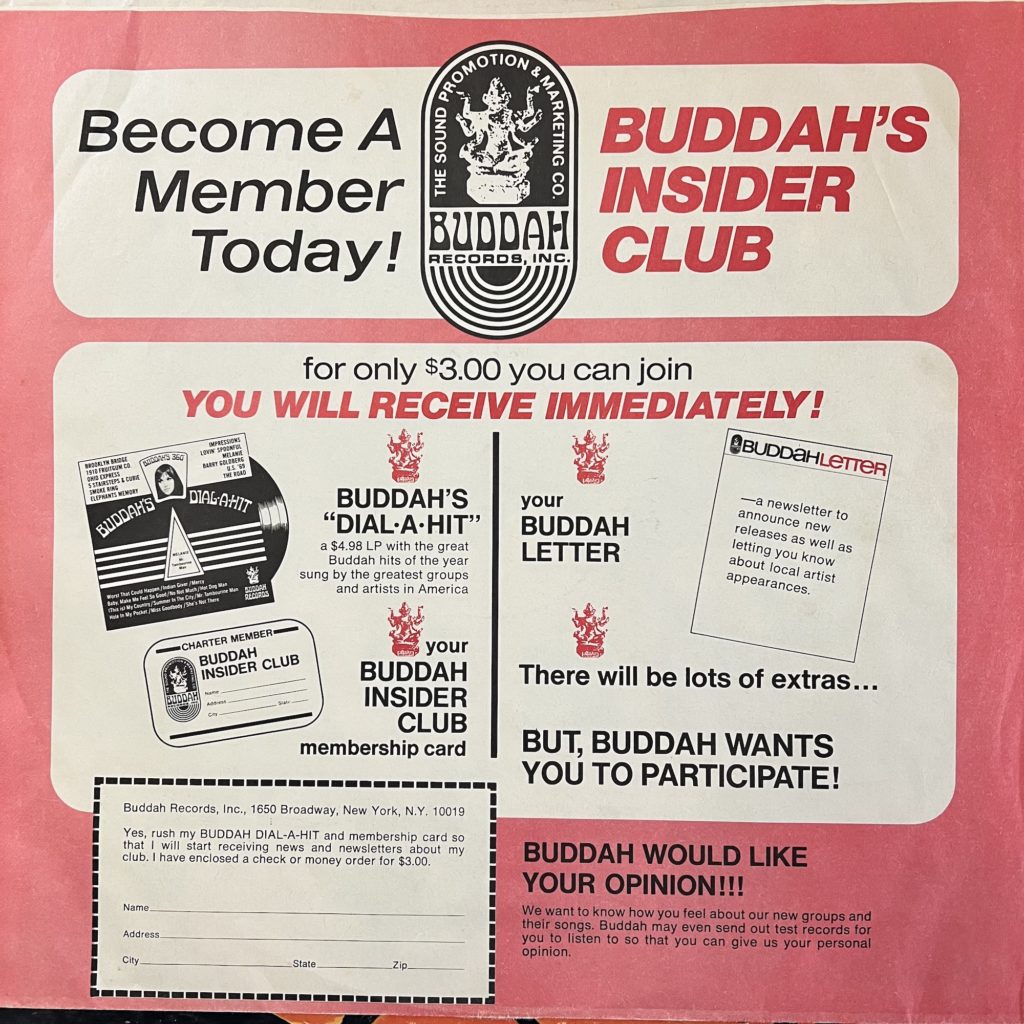
I’ll admit, after seeing this promotional sleeve, I was very curious what kind of $4.98 record I would get for my $3 in 1970. Thanks to Discogs, I know that the Dial-A-Hit record (which had a contrivance that allowed pictures of the various artists represented to be spun into the die cut at the top of the record) featured 1910 Fruitgum Co. (with “Indian Giver,” so: ugh), as well as Ohio Express, so bubblegum was well covered. It had Brooklyn Bridge with “Worst That Could Happen,” an obscure Impressions song, Lovin’ Spoonful’s “Summer In The City,” a few more obscure artists, and Melanie’s “Mr. Tambourine Man.” Not a bad collection, but also not songs that have anything to do with each other, other than being released by the same label.
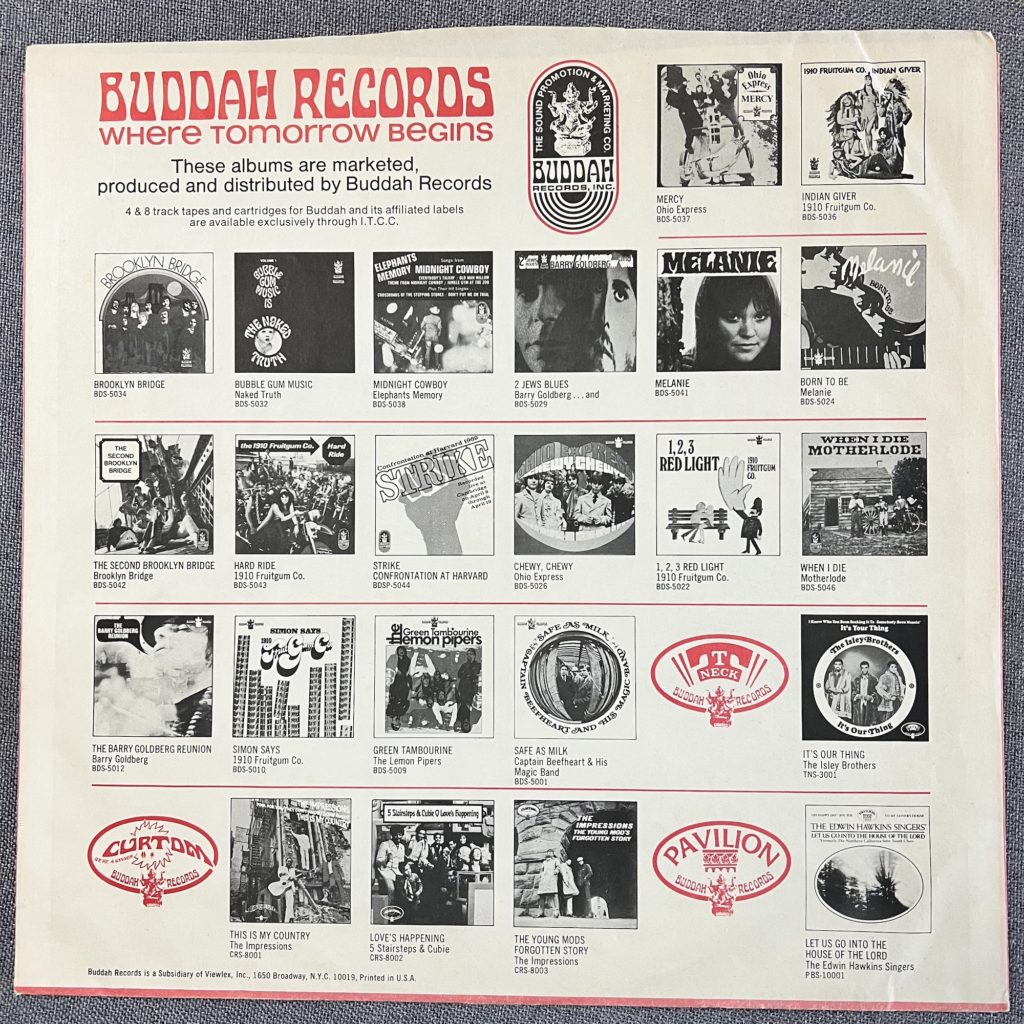

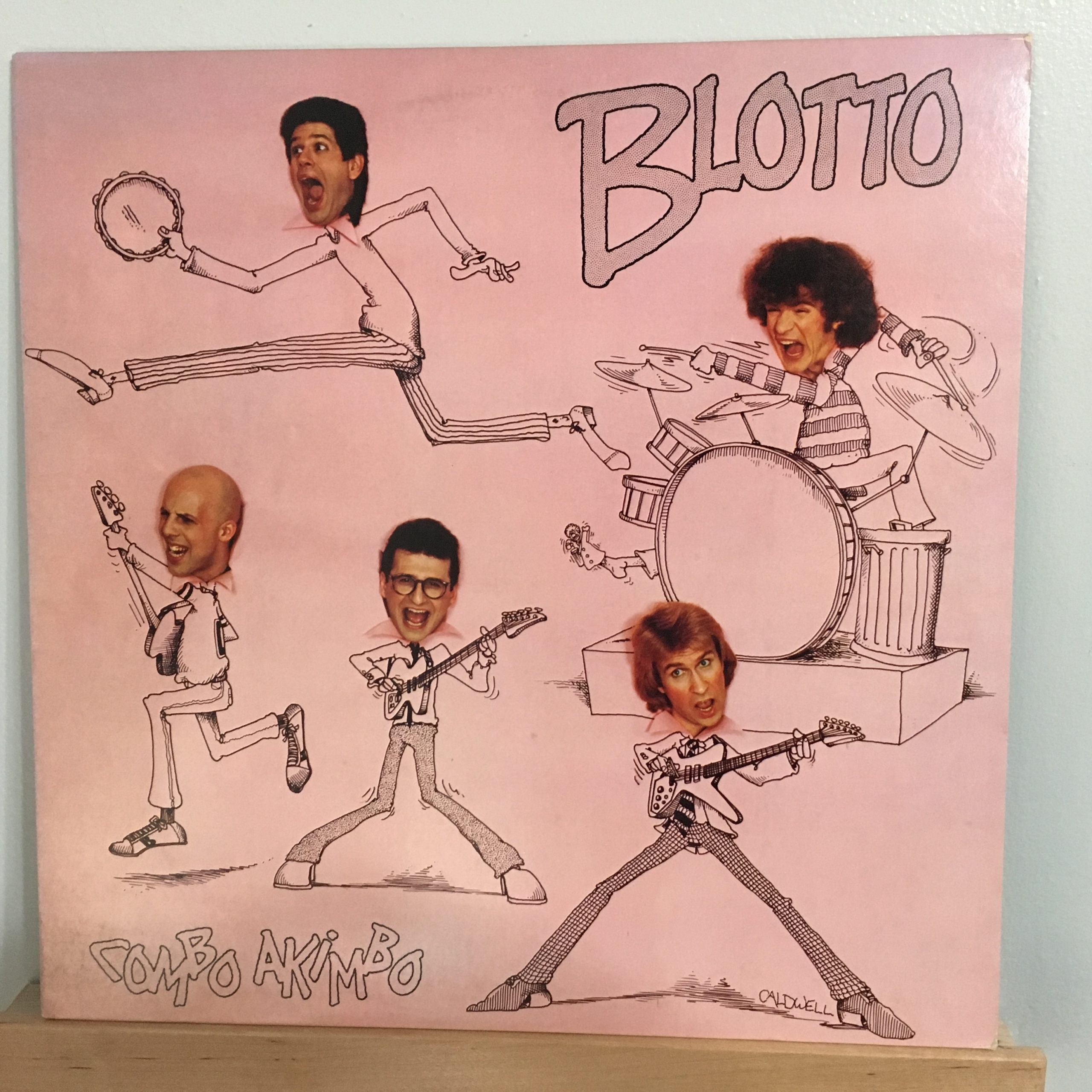
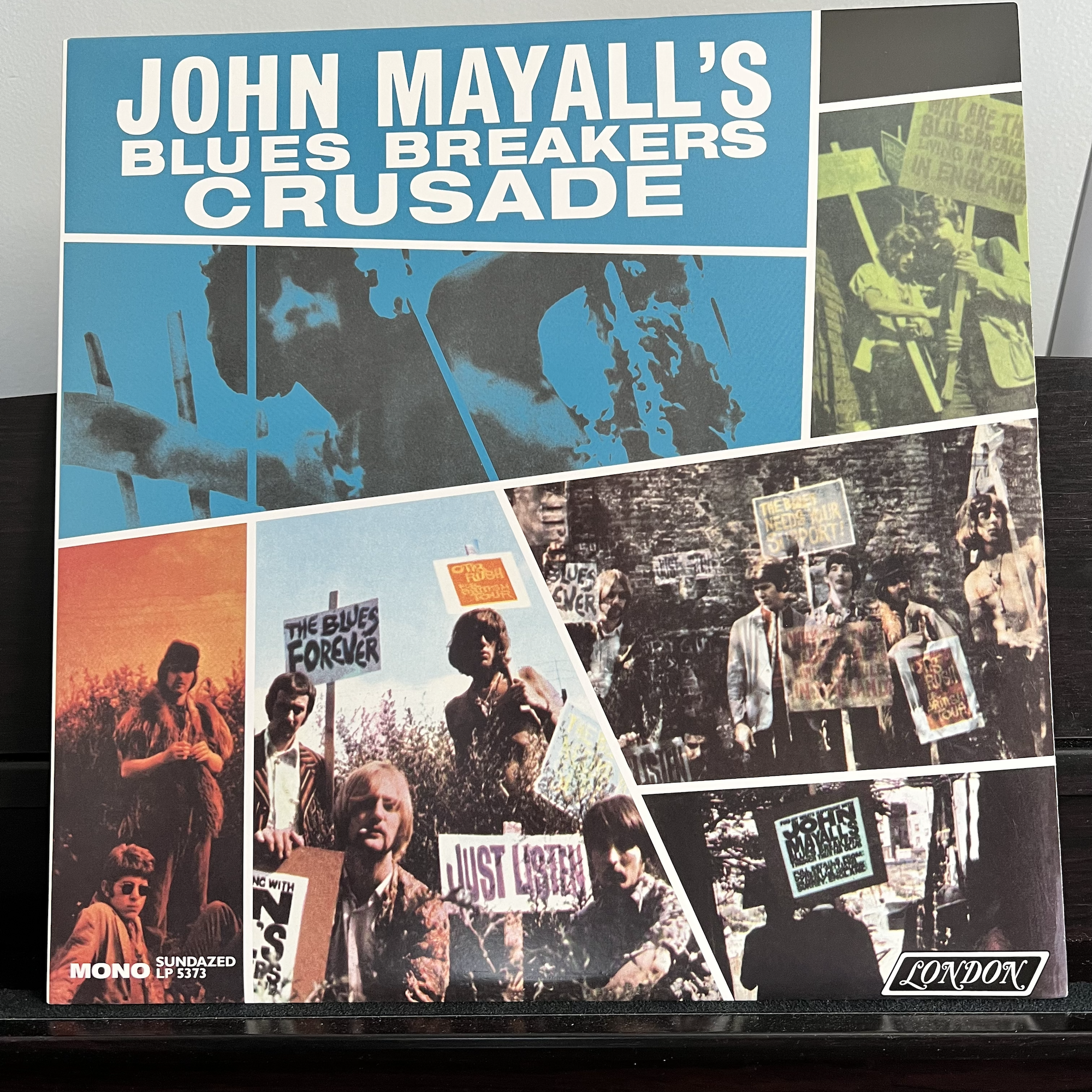
Things We Said Today